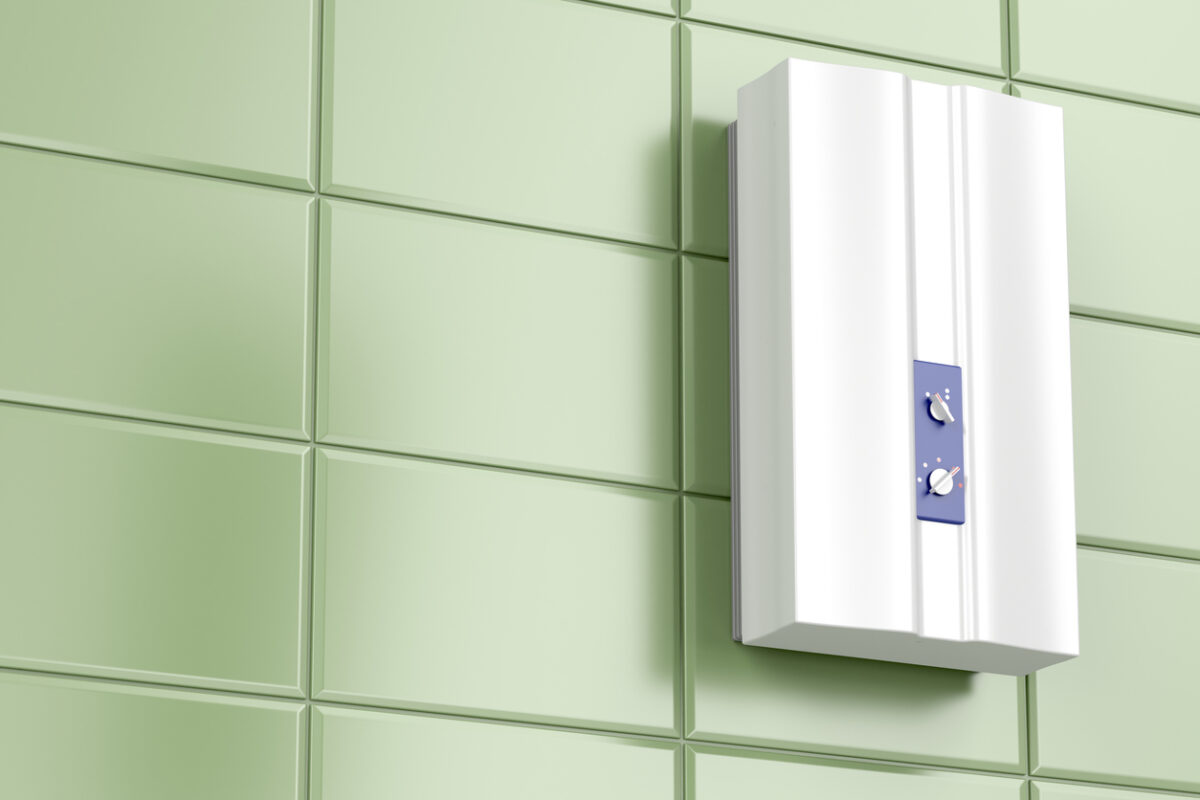Tanked vs Tankless Water Heaters: How to Choose

Your choice of water heaters will shape the comfort and functionality of your home. Traditional tanked water heaters maintain a reservoir of hot water but can be drained. Tankless water heaters heat water on demand. but they have a limited flow rate. Each has both advantages and disadvantages that are worthy of consideration. Which is better for your home? Understanding the differences can help you choose the right water heating system for your home and lifestyle.
Join us in a detailed comparison of tanked vs tankless water heaters and how to choose between them.
Tanked Water Heaters
Tanked water heaters store water in a large metal tank. These tanks range from 20 to 80 gallons. The water is then heated using heating elements at the bottom of the tank, up to the set temperature of the unit. This water is maintained at the hot temperature until it is needed and the heating cycle restarts if the water cools or if new room-temperature water is added after the tank is drained.
When you turn on a hot water tap, hot water is drawn from the top of the tank, and new cold water is added to the bottom, where it can be most quickly heated.
Pros:
- Large Volume, Large Flow – Tanked water heaters can provide a lot of hot water all at once, to multiple taps and appliances.
- Low-Cost Installation – Tanked water heaters cost less initially to purchase and install compared to tankless systems.
- Simple Technology – It is easy to understand, clean, and repair tanked water heaters.
Cons:
- Limited Supply – It is possible to fully drain the tank and run out of hot water.
- Refill/Reheat Delay – If the water heater is drained, it takes time to refill and reheat a new tank of water
- Not Energy Efficient – Tanked water heaters reheat unused water all the time, which is not energy efficient.
- Large Size – The tank takes up a large area in your utility space.
- Maintenance – Tank water heaters build up scale and must be regularly flushed. Flushing involves draining and vinegar rinsing or scrubbing the inside and heating elements.
- Thermal Expansion – You may require thermal expansion tanks to accommodate water expanding as it heats.
Tankless Water Heaters
Tankless water heaters are on-demand. They heat water as it flows through the unit using a gas burner or electric element heating a conductive pipe. Tankless water heaters can provide a potentially infinite amount of hot water while only heating when water is running through the pipe.
Pros:
- Energy Efficient – Tankless water heaters only heat when the tap is running.
- Unlimited Hot Water – There is no ‘running out of hot water’ because water is heated on demand.
- Tidy Size – Tankless water heaters take up much less space with no need for a large tank.
Cons:
- Limited Flow Rate – Tankless water can supply a limited number of gallons per minute. This means limited support for multiple taps and appliances.
- Higher Installation Cost – A tankless water heater is initially more costly than a tanked water heater to purchase and install.
- Complex Installation – Tankless water heaters are in-line, and therefore more complex to install into your plumbing. They may also require an upgrade to your home’s electrical system or gas line.
- High Maintenance – Tankless water heaters must be constantly cleaned and maintained for optimal performance.
Factors To Consider When Choosing
Household Size and Hot Water Demand
If you have a big family or need to run multiple water appliances at once, a tanked water heater may be ideal. Smaller households with limited all-at-once hot water demand is more suitable for a tankless water heater.
However, a tankless water heater can also be installed to supply hot water to only a few selected taps, like bathrooms but not laundry.
Energy Efficiency
If your goal is energy efficiency, a tankless water heater is the superior choice. Tanked water heaters are significantly less energy efficient.
Installation Space
Tanked water heaters need a big utility space, but many homes already have this space available. Tankless water heaters fit more easily into tight spaces and can be added to a home design more easily.
Initial Budget
Tankless water heaters are more costly than tanked water heaters, so your total budget may influence your choice.
Long-Term Savings
Tanked water heaters cost more in power bills due to the constant power cycles to keep a large tank of water hot and available.
Selecting the Right Water Heater for Your Home
Determining the best water heater for your home depends on your household, lifestyle, budget, and preferences. With a larger home or budget, you can use both for different taps and purposes. Tanked water heaters are more suitable for a smaller budget and tankless water heaters are more suitable for a smaller home.
Understanding the differences can help you choose the best option for your household’s water heating needs. If you’d prefer an in-home assessment with a plumbing service professional, Aztil is here to help. Contact us today to discuss the best water heater solution for your home and lifestyle.












